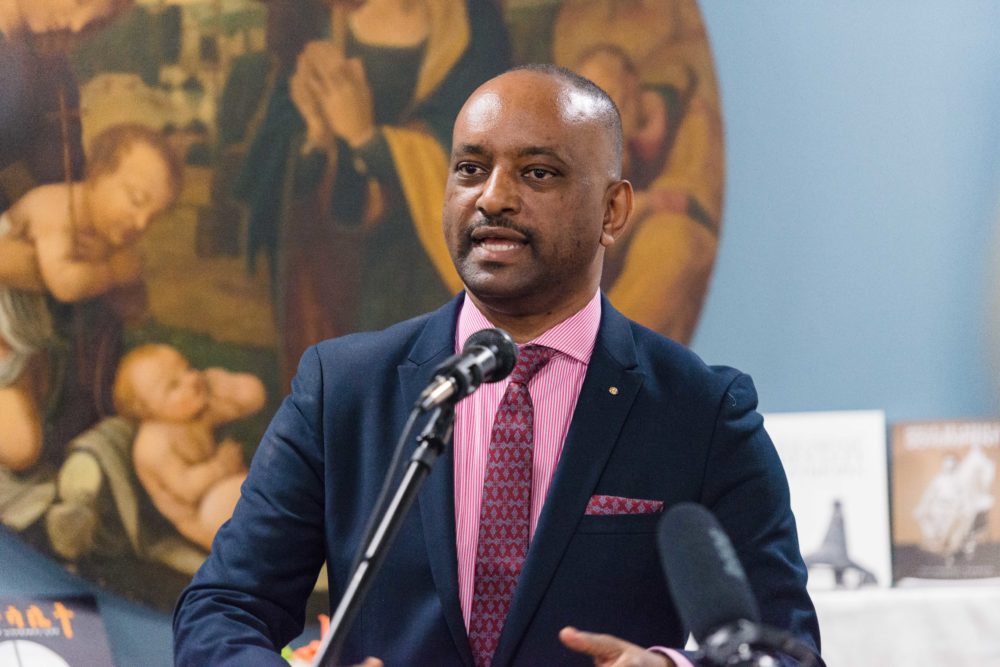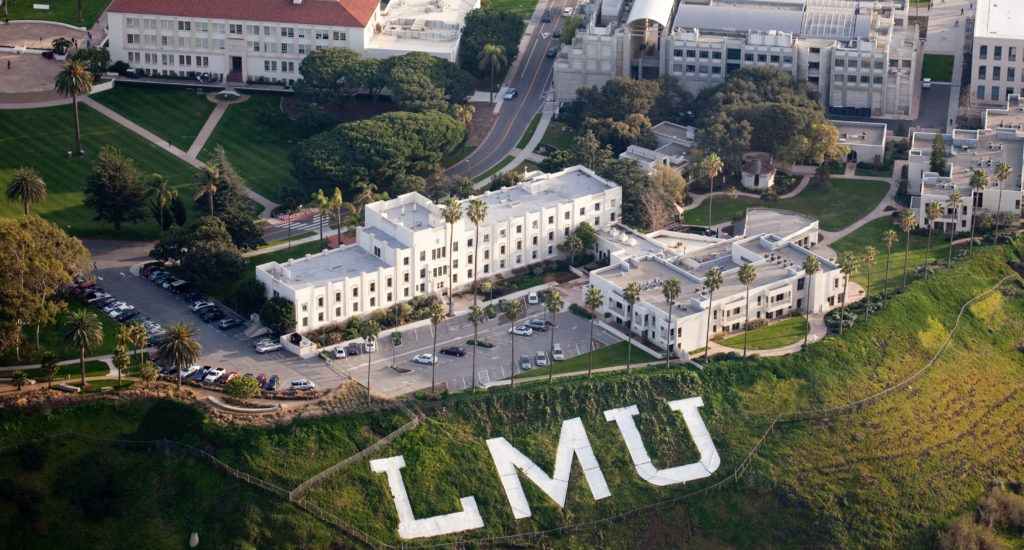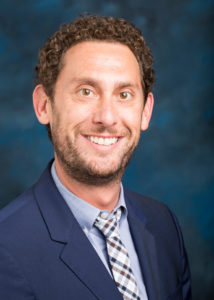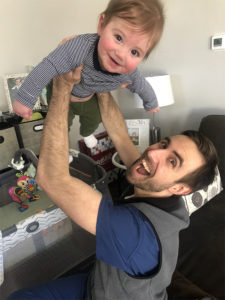CONVERSATION | Elias Wondimu, publisher of TSEHAI Publishers, came to LMU in 2007 as part of the Marymount Institute for Faith, Culture and Arts. He has been a journalist in exile from his home in Ethiopia since 1994. Wondimu founded TSEHAI, which is named after his mother, and the publishing house “has become a vital and indispensable resource, Wondimu has assumed the role of cultural ambassador,” according to the LA Weekly. The Marymount Institute for Faith, Culture, and the Arts was founded in 1991, endowed by the Leavey Foundation to preserve the legacy and contributions of the Religious of the Sacred Heart of Mary. The institute attends to the relationship between different faiths, unique human cultures, and the arts. Wondimu talked with LMU This Week about his work.
LMU This Week: How did Tsehai land at LMU, and did the university find you or did you find LMU?
Elias Wondimu: I think as anyone who makes his home Los Angeles, you can’t help but find LMU first. I had an opportunity to come and use the library and attend a Mass for Christmas. In that sense, I discovered LMU.
But how did I land here? In 2007, I came to attend a lecture by Wole Soyinka, and at the reception at the Marymount Institute I was introduced to Dr. Theresia de Vroom. And she was working on a book project with Dr. Matthew Dillon called “In Africa.” They wanted me to help in that project. Soon after that, we started the Marymount Institute Press and published our first book “A Journey into Love: Meditating with Piers Plowman.” That’s how we started.
LTW: What are the Tsehai Publishers’ imprints and what is their focus?
EW: The imprints are there to cover, to actually give ownership and to provide specifically tailored editorial support. The first one is the Marymount Institute Press. The editor is Professor de Vroom and we have a slew of editorial board members, leading scholars from LMU and outside LMU. The second one is African Academic Press. Its editorial board ranges from scholars from Princeton, Harvard, and many other universities, local and international, and it focuses on African studies, African academic knowledge production and global scholarship.
And the latest one is the Harriet Tubman Press, which is specifically African-American, as the name dictates. It is also where many editorial board members are leading African-Americans and editors are also African-Americans.
LTW: What is the significance of having Harriet Tubman Press at LMU?
EW: LMU has been diversifying its reach and inclusion to the larger Los Angeles communities. The significance of having Harriet Tubman Press at LMU is, in many ways, that LMU has now become the focal point of discussion in this regard, where these diverse conversations are happening or knowledge is being produced. With the closure of Howard University Press in 2011, Harriet Tubman Press has become currently the only African-American university press based in a university. It encourages the new recruits, staff, faculty, or students, and it encourages people to see the diversity of the university in a new light. It also encourages the alumni, who see that LMU is showing its leadership role in academia.
LTW: Do you envision getting undergraduates involved in Harriet Tubman Press?
EW: LMU is primarily an undergraduate university. It is not UCLA; it’s not USC or Berkeley. Because of that, we always engaged undergraduate students to work with us. Publishing is an apprenticeship industry; it is not an industry where you can go and get your master’s degree or Ph.D. in publishing and become an editor. You work through someone who will mentor you, and then they will connect you with their colleagues. In the past 20 years, we have witnessed that publishing is consolidating and diminishing in number, so that means the entry points into the publishing industry are also reducing.
Our undergrad students at LMU are the luckiest people that I can imagine because their names have been – before they graduate –published in two or three books, if they are good. And we don’t just put their names on the books. You know, they have to earn that place through their diligence and hard work.
In whatever field they want to pursue, we are giving them their entry into that world. By doing that, we help them see the world differently. We help them learn about those across the street, across the river and across the ocean. We help them learn about the homeless problems in Los Angeles. We help them learn about medieval manuscripts and different subjects in continental Africa. All these will help them understand the world around them and help them become the best global citizen in it.
LTW: You’ve held events in New York at the Schomburg Center for Research in Black Culture and in Washington D.C. at the Library of Congress. How was your work at LMU received in those national settings?
EW: It was received very, very well. We have been doing this for a long time, and whenever we are in these spaces there are two questions they ask us: One, where have you been until now? Number two is where is LMU? Or what is LMU? So now I tell them our story.
LTW: When the world seems to be turning digital, you are devoted to print. What do you see that others are missing?
EW: Digital is a new technology that is going to grow. It’s moving. It’s changing. And there was actually a time where people were saying that you don’t even need to publish books while the internet is there, that you can post things and it will always be there. The rude awakening of the past year and a half in America teaches us that that is not true. Because you have something online it doesn’t mean that it will be there forever. With a stroke of a key, someone with ill will, or whatever intention they may have, can take a section or the entire website or document out of the web.
So, with the net neutrality that just was approved our definition of digital world is changing by the day, so we can’t rely on digital platforms for posterity anymore. Yes, it has made the process of publishing a little bit shorter or cheaper. But it doesn’t replace book publishing.
If you have a book, it doesn’t matter where you are, you can always read it or pass it on to the next reader — as is or disguised. That is why books are hated by dictators. That is why they burn or ban them from circulation. Books will always be dangerous to those who fear the truth in them.
So, books will continue to be very important. But by saying all this, I’m not saying that we don’t need digital version of the books. We need digital versions of the books we publish. For expediency and for accessibility, and many other reasons, we are currently digitizing our books.
Learn more about TSEHAI Publishers here.




